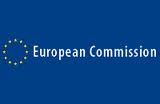Analytics, Education and Science, EU – Baltic States
International Internet Magazine. Baltic States news & analytics
Tuesday, 23.04.2024, 22:56
Digital age for European future: openness is a key to success
 Print version
Print version |
|---|
Science
should be open on three compelling reasons: first – transparency, as being honest
and open means better information, better decisions and better governance. Second
– fairness; it is about giving taxpayers back what they've already paid for,
e.g. scientific results or traffic information. And third, it's about
innovation: the more you share ideas – the more others can build on them. It's
a new way of operating and thinking. Information can long sit in dusty drawers;
but it only gains value when it is opened up. It means turning data into jobs; so-to-say,
dust into gold.
That is the promise of the Internet, which is an amazing accelerator for innovation where one can only get the benefits if it is all open. This concept concerns more open Europe too.
EU efforts
First, openness for public administrations is already delivered. EU law now gives a genuine right to every European to reuse open public information: from any administration in any EU country at any level and without complex licensing restrictions.
And
without high costs – in almost all cases it can only ever be at marginal cost. In
the digital age, this basically means for free, otherwise something has gone
wrong. The EU's member states now have one more year to pass those rules into
national law.
And the
European Commission is helping the states to do that: giving guidance on how to
pick the data for release, on licensing, on charging, and more.
The EU is
leading by example with its own data portal; the EU goes further a call for
tender for a new pan-European data infrastructure is open until 8 September 2014.
All EU
member states start to realise that being is simply a part of their function as
a public body.
As countries transpose new laws, and start to implement them it is important to see how things are changing across borders and languages. Thus, the Commission is going to convene an Erasmus for Open Data conference in Nantes, France, in September 2014.
Second, sharing and openness
have always been an essential part for open science, thus helping
the community examine, compare and learn. Open access to science can be good
for all - citizens, scientists and society at large.
This trend comes not from political instruction, but from the bottom up: from scientists themselves. For example, the EU Horizon 2020 program will offer €80 billion for research and innovation; it is the EU biggest ever investment.
Reference: Neelie Kroes, Vice-President of the European Commission responsible for the Digital Agenda. Speech: Embracing the open opportunity, at Open Knowledge Foundation, Berlin, 17 July 2014; European Commission- SPEECH/14/556; 17/07/2014.
Every
resulting scientific publication has to be openly and freely available. Henceforth,
the Commission is calling on member states to open up their national programs
too. Across Europe and beyond, countries are already realising the benefits and
the payback of open science.
The effect of open digital science is better participation for improved impact, and scientific results that delivers for society. The Commission’s consultation on 'Science in Transition' is open until the end of September 2014 (see the site at: http://tinyurl.com/opendigitalscience).
Third: the intention is to deliver openness for the internet itself. For too long telecom operators in the member states have had the right to decide what people could and/or couldn’t access online, thus breaching web-nets’ neutrality. For the first time ever across the EU, the Commission proposed new rules to safeguard the open internet for all, and to end blocking and throttling of services.
Finally, the best investment in European future is education, which must be open too. It has to be a criminal offence to prevent teachers from freely sharing open educational resources.
Besides,
schools and universities can gain much by making every classroom digital.
That
shows how copyright rules need to change: those rules were designed for a
different age, more about limitation and control than creativity and freedom. It
is not any more feasible to holding back ideas from open education, thus copyright
needs urgent reform.
Besides,
there are many ways for social life to be open: e.g. open standards, open personal
sources, open building blocks for new apps; for example, there will soon be €80
million available for that openness under the EU’s new FI-WARE initiative.
There is a
whole generation that's grown up with this new open approach. They're starting
to make their voices heard; and people are listening.
Every Commissioner needs to be able to take advantageof digital opportunity: Europe needs a change of mindset. Every lawmaker, every public body, and every vested interest who wants to push back, they all have to be convinced about better ways of doing things, e.g. in an open way.
Reference: http://europa.eu/rapid/press-release_SPEECH-14-556_en.htm?locale=en








 «The Baltic Course» Is Sold and Stays in Business!
«The Baltic Course» Is Sold and Stays in Business!

